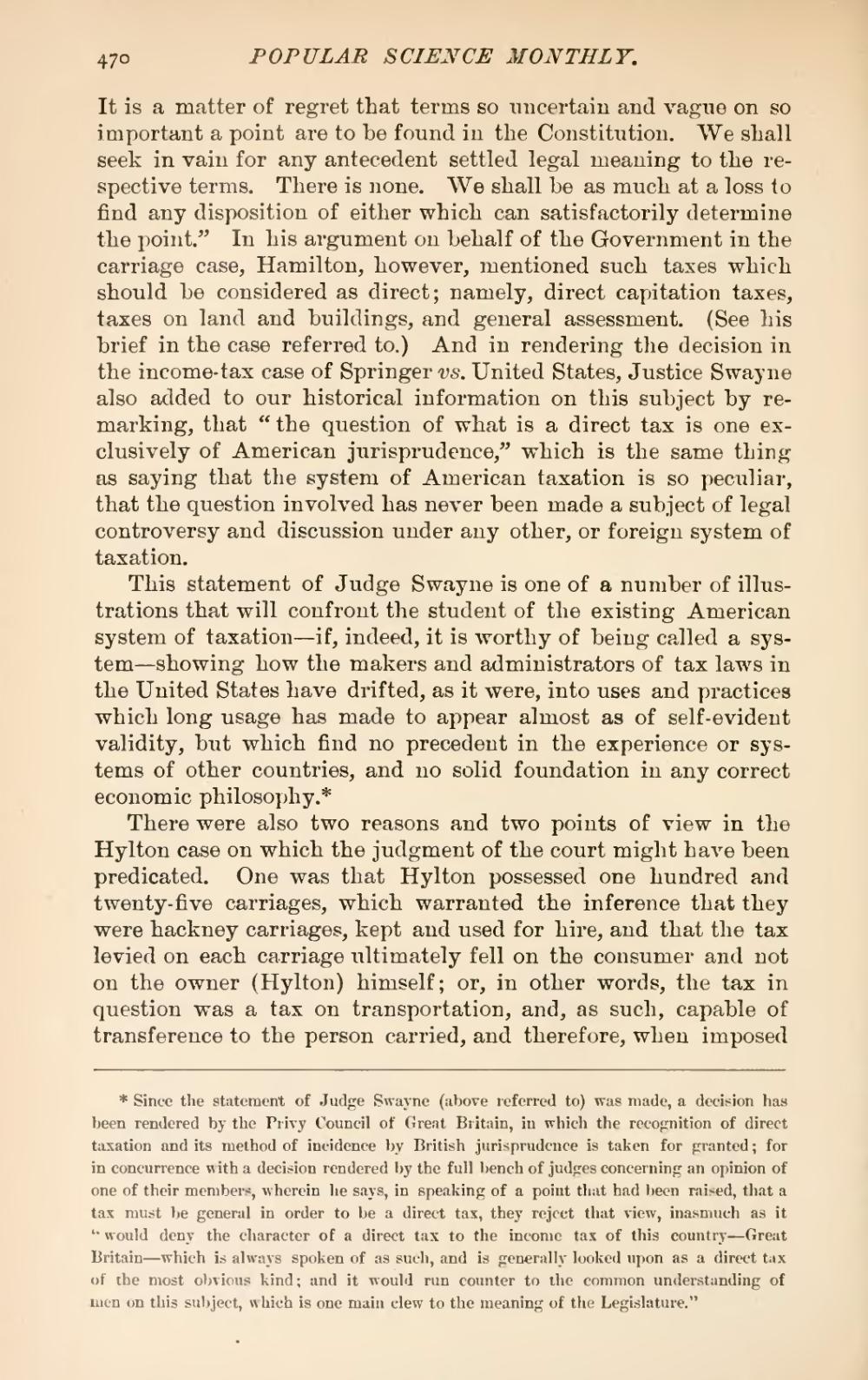It is a matter of regret that terms so uncertain and vague on so important a point are to be found in the Constitution. We shall seek in vain for any antecedent settled legal meaning to the respective terms. There is none. We shall be as much at a loss to find any disposition of either which can satisfactorily determine the point." In his argument on behalf of the Government in the carriage case, Hamilton, however, mentioned such taxes which should be considered as direct; namely, direct capitation taxes, taxes on land and buildings, and general assessment. (See his brief in the case referred to.) And in rendering the decision in the income-tax case of Springer vs. United States, Justice Swayne also added to our historical information on this subject by remarking, that "the question of what is a direct tax is one exclusively of American jurisprudence," which is the same thing as saying that the system of American taxation is so peculiar, that the question involved has never been made a subject of legal controversy and discussion under any other, or foreign system of taxation.
This statement of Judge Swayne is one of a number of illustrations that will confront the student of the existing American system of taxation—if, indeed, it is worthy of being called a system—showing how the makers and administrators of tax laws in the United States have drifted, as it were, into uses and practices which long usage has made to appear almost as of self-evident validity, but which find no precedent in the experience or systems of other countries, and no solid foundation in any correct economic philosophy.[1]
There were also two reasons and two points of view in the Hylton case on which the judgment of the court might have been predicated. One was that Hylton possessed one hundred and twenty-five carriages, which warranted the inference that they were hackney carriages, kept and used for hire, and that the tax levied on each carriage ultimately fell on the consumer and not on the owner (Hylton) himself; or, in other words, the tax in question was a tax on transportation, and, as such, capable of transference to the person carried, and therefore, when imposed
- ↑ Since the statement of Judge Swayne (above referred to) was made, a decision has been rendered by the Privy Council of Great Britain, in which the recognition of direct taxation and its method of incidence by British jurisprudence is taken for granted; for in concurrence with a decision rendered by the full bench of judges concerning an opinion of one of their members, wherein he says, in speaking of a point that had been raised, that a tax must be general in order to be a direct tax, they reject that view, inasmuch as it "would deny the character of a direct tax to the income tax of this country—Great Britain—which is always spoken of as such, and is generally looked upon as a direct tax of the most obvious kind; and it would run counter to the common understanding of men on this subject, which is one main clew to the meaning of the Legislature."
